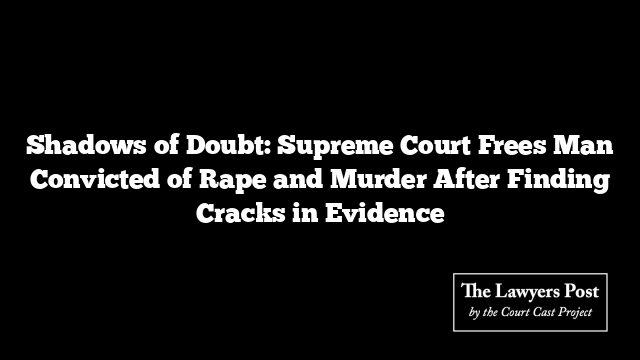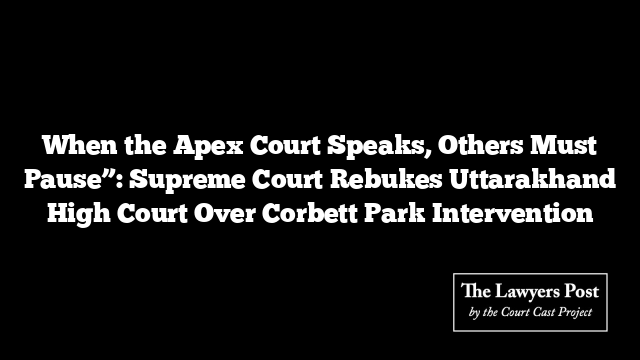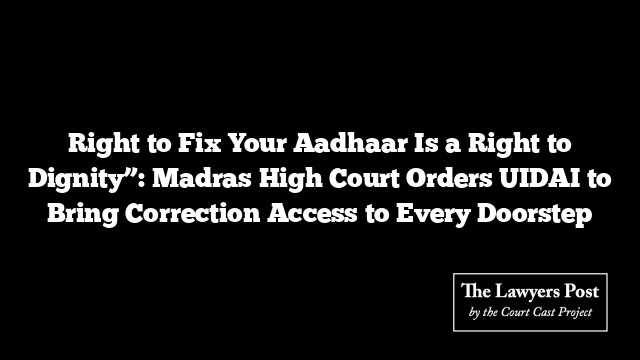The Supreme Court has overturned the conviction of a man once sentenced to life imprisonment for the rape, murder, and robbery of an 85-year-old woman, calling the investigation “riddled with gaps” and the evidence “too fragile to convict.”
Mohamed Sameer Khan had been serving a life sentence handed down by a special court in Coimbatore in 2017. He was accused of strangling the elderly woman with a towel, stealing her gold bangles, and sexually assaulting her. The case, however, rested entirely on circumstantial evidence—none of which, the apex court found, stood firm under scrutiny.
A bench of Justices Dipankar Datta and A.G. Masih noted that the prosecution’s story “collapsed under its own weight,” particularly after failing to call a key witness named Marcus, who was last seen with Khan before the incident. “The non-recording of Marcus’s statement,” the bench said, “casts a shadow over the fairness and sincerity of the investigation.”
Marcus, who had reportedly stepped out for a smoke with the accused around 2:00 a.m. after a party, could have offered crucial insight into Khan’s whereabouts. Yet investigators dismissed him as “not a material witness.” The Court found that omission not just careless, but potentially consequential—enough to plant reasonable doubt about the accused’s involvement.
The prosecution had leaned heavily on the claim that Khan was seen leaving a compound near the victim’s home around 2:45 a.m., but the judges observed that this alone could not tie him to the crime scene, especially when the estimated time of death spanned from 9:00 p.m. to 2:00 a.m. the same night.
Adding to the uncertainty, no semen was found, and the alleged recovery of stolen bangles from Khan’s possession was contested by him as a custodial fabrication. The Court found these inconsistencies too significant to ignore.
“Where the chain of evidence is incomplete,” the bench wrote, “the benefit of doubt must tilt in favor of the accused.”
With that, the Supreme Court set aside both the trial court’s and the Madras High Court’s judgments, granting Khan his freedom after nearly a decade behind bars—his conviction undone not by new evidence, but by the silence of one missing witness and the echoes of a flawed investigation.





